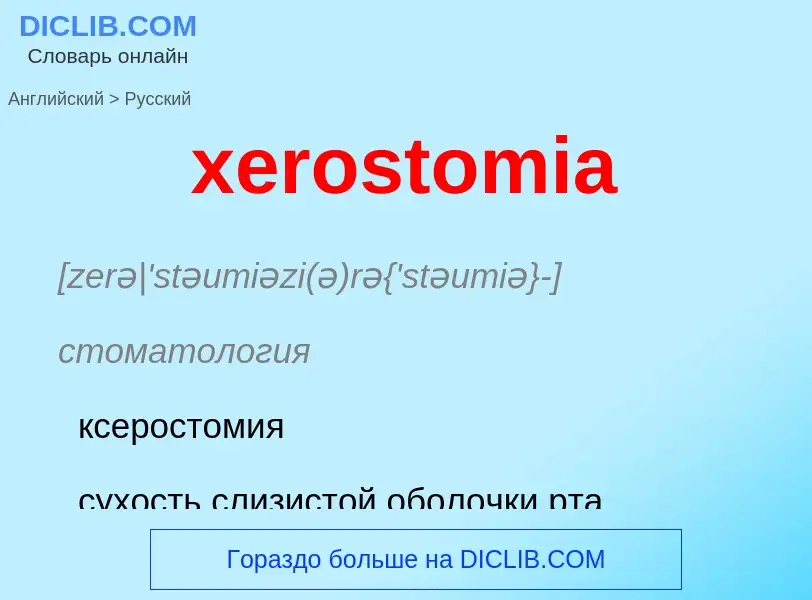Übersetzung und Analyse von Wörtern durch künstliche Intelligenz ChatGPT
Auf dieser Seite erhalten Sie eine detaillierte Analyse eines Wortes oder einer Phrase mithilfe der besten heute verfügbaren Technologie der künstlichen Intelligenz:
- wie das Wort verwendet wird
- Häufigkeit der Nutzung
- es wird häufiger in mündlicher oder schriftlicher Rede verwendet
- Wortübersetzungsoptionen
- Anwendungsbeispiele (mehrere Phrasen mit Übersetzung)
- Etymologie
xerostomia - Übersetzung nach russisch
[zerə|'stəumiəzi(ə)rə{'stəumiə}-]
стоматология
ксеростомия
сухость слизистой оболочки рта
существительное
медицина
ксеростомия
сухость во рту
медицина
гипоптиализм
гипосаливация
гипосиалия
недостаточное отделение слюны
медицина
сухость во рту
Wikipedia

Xerostomia, also known as dry mouth, is dryness in the mouth, which may be associated with a change in the composition of saliva, or reduced salivary flow, or have no identifiable cause.
This symptom is very common and is often seen as a side effect of many types of medication. It is more common in older people (mostly because this group tend to take several medications) and in people who breathe through their mouths. Dehydration, radiotherapy involving the salivary glands, chemotherapy and several diseases can cause reduced salivation (hyposalivation), or a change in saliva consistency and hence a complaint of xerostomia. Sometimes there is no identifiable cause, and there may sometimes be a psychogenic reason for the complaint.


